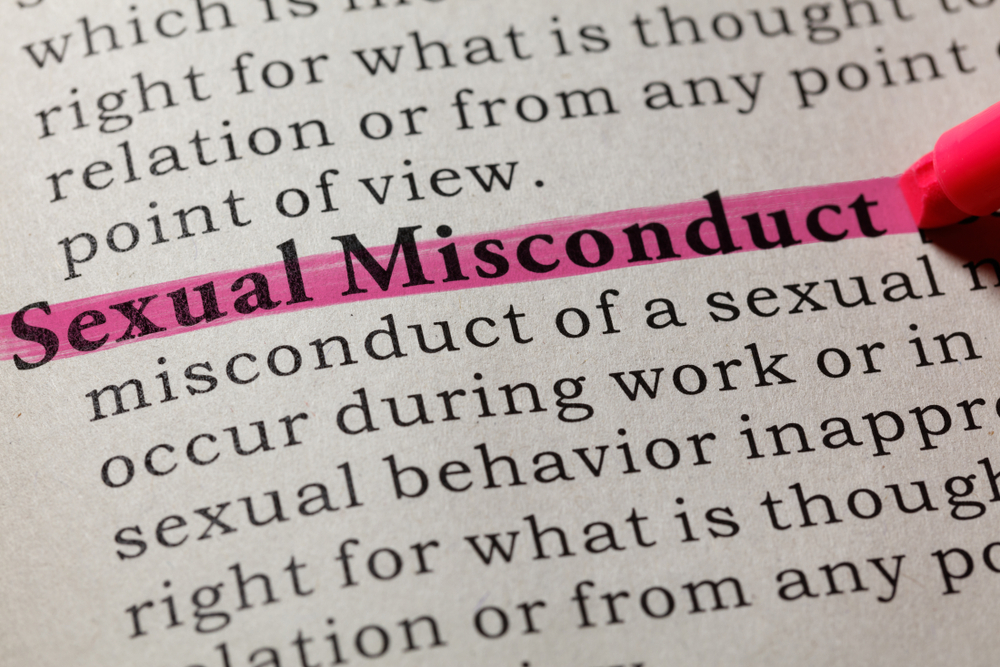OU News
News from The Open University
- Home
- Sexual misconduct in the UK Parliament – research shows pathway to change
Sexual misconduct in the UK Parliament – research shows pathway to change
Posted on • Arts and social sciences, Society and politics

A first-of-its-kind research book shines a light on the experiences of women who have been affected by sexual misconduct while working in the UK Parliament.
The research looks at what could be done to create the conditions for change and gives voice to many whistle-blowers and survivors of sexual harassment who bravely shared their stories.
It is the culmination of three years’ work by Dr Christina Julios, an academic author, Honorary Associate and Associate Lecturer in The Open University’s School of Social Sciences and Global Studies.
Aims to influence policymakers to implement change
Christina says the work aims to influence policymakers and those in positions of authority to implement “long-overdue” changes to the current status quo.
She also hopes to encourage those affected by sexual misconduct to feel more confident in reporting cases.
At an intellectual level she says the research in the book provides much-needed data and insights into the extent of the problem together with debates surrounding the question of violence against women in politics (VAWP).
Majority of perpetrators are men and victims female
Christina is careful to point out that sexual harassment affects men, women and those of different sexual orientations and demographics, but in terms of female/male ratio, she says evidence shows that “the vast majority of perpetrators are male and their victims female”.
Her work examines issues relating to organisational cultures, lack of support for victims, problems they experience versus the institutional complicity in covering-up perpetrators’ behaviour, which she says have typically been male MPs, as well as the unequal gender-power dynamics in the workplace.
Endemic issue in workplaces everywhere
“My work looks at the fact that this is an endemic problem not only in the UK but in workplaces everywhere. This is what the #MeToo movement helped to highlight,” she says.
Christina believes the research will give scholars, practitioners and policymakers a greater understanding of the nature of sexual harassment in the UK Parliament as well as identifying the challenges facing those affected by it.
It explores research and public policy initiatives that surfaced in the wake of #MeToo including, Dame Laura Cox’s (2018) independent review into The Bullying and Harassment of House of Commons Staff.
This report unveiled the reality of Westminster’s patriarchal culture, persistent gender power gap and working dynamics that often disadvantage women in the parliamentary workplace.
Similarly, the Independent Complaints and Grievance Scheme (ICGS) emerged after an avalanche of newspaper headlines about MPs’ misconduct came to light in 2017, and exposed widespread sexual harassment in the UK Parliament.
The ICGS aims to strengthen Parliament’s internal procedures and facilitate reporting of misconduct cases.
Gender power gap remains skewed to men
Christina says: “Progress has been made at many levels, if only because we have more women at work and educated women in positions of authority.
“But the gender-power gap in organisations still remains very much skewed towards men.”
Reflecting on the current situation in Westminster, she notes:
“Look at the lack of women representation in Parliament. We have 35% of female representation in the House of Commons and 28% in the House of Lords. Existing data from 156 countries shows 26% of female representation in parliaments around the world.
“There are 81 countries that have never had women as heads of state. We only have 10 female acting heads of state currently.
Women outnumbered and outranked
“It’s a perfect storm – only a third of people in the UK parliament are female and therefore it is a very masculine environment. Women are not only outnumbered but they are outranked.”
Employment figures continue to show that top-level civil servants remain mostly male, although attitudes have improved. Christina says: “We have better data but, fundamentally, the gender power gap has not evolved.”
This is not only a UK-specific problem, but a global trend. She says The World Economic Forum states that at the current rate of progress, it would take 145 years to close the gender gap when it comes to gender parity in politics.
Against this background, Christina’s research not only highlights the extent of the sexual harassment problem in Parliament, but points in the direction of much needed long-term solutions.
Sexual Harassment in the UK Parliament | SpringerLink
Picture credit: Feng Yu for Shutterstock